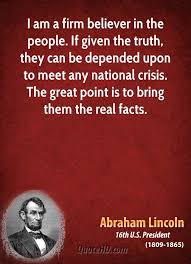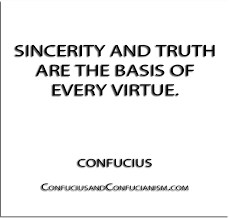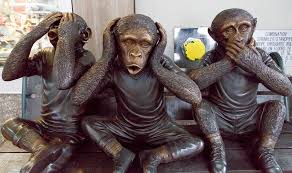
I see that spirit in the people of the world in the face of pandemic. We’re taking ourselves out of social circulation, for the most part, in consideration of the greater good. We have been given real facts by relevant health organizations. At great inconvenience and disruption of our lives, we have altered our standard mode of living in a collective effort to mitigate the spread of a deadly virus. This is quite an accomplishment in itself.
While I do accept that the fundamental basics of what we’re being told about COVID-19 are true, I can’t help thinking the information about the ongoing statistics and the prospects for the future are being obfuscated. This may be partially unintentional, as it’s difficult to report on numbers that are complex and constantly changing. Out of desperation, the future can be looked upon with false fear or false hope. It can also be misrepresented to secure political gain.
The scope of this article goes much further than assessing the handling of truth in reaction to the effects of the coronavirus. It goes back many years. Just how long has truth been losing its grip on the conscience of humankind?
When Truth Was Esteemed
In today’s Information Age, it is sad indeed that truth is so often seen to be unimportant. A version of the so-called truth is passed off as “alternative facts” by some of the most cynical. Throughout the history of the human race, there have probably been many times when truth was tossed aside as an inconvenience for those who wanted money, power or better circumstances of any kind. But it wasn’t always that way. Although there were no doubt always dishonest people, there have been many more to whom truth was greatly valued.
Ancient Persian children were instructed in morals as well as physical skills. They were to draw the bow and to speak the truth. In the time of the Old Testament, the Hebrews made it clear that being truthful was part of being a good person and a follower of God. Aristotle called truth “noble and praiseworthy.”
Thomas Jefferson wrote repeatedly about truth and often in regard to being fearless when it came to having the truth known about him. My favorite quote of his on the general subject is, “Honesty is the first chapter in the book of wisdom.”
Henry David Thoreau shed light on the potential for erosion of the truth when he wrote, “If we dealt only with the false and dishonest, we should at last forget how to speak truth.”
In an article titled, The Virtue of Truth, Reverend Professor J. Radford Thomson stated, “Among the morally cultivated, truth is regarded, not only as obligatory and as contributive to the well-being of society, but also as beautiful and admirable, and even as a mark of good breeding. On the other hand, untruthfulness is regarded, not only as always a vice and sometimes a crime, and as a sin against God, but also as a deformity, a moral degradation, and as a fault peculiarly mean and base.”

What Went Wrong
I submit that our commitment to truth, integrity and doing unto others as you would have them do unto you began to unravel with the advent of the Industrial Revolution. Its origin is traced to England in 1760, but it wasn’t up to full speed until about 1840 when it spread to other parts of the world.
I have long suspected that the Industrial Revolution was a turning point in degrading our societal evolution. My research for this article led me to an excellent article supporting my theory, at least addressing the basics of how the Industrial Revolution was the beginning of the erosion. The article is titled Some Ethical Consequences of the Industrial Revolution. Written by R. Austin Freeman, it was published in the International Journal of Ethics in 1923.
Freeman discusses the industrial arts of ancient craftsmen and how their most important considerations were “1. Function of the thing produced, conceived in terms of the consumer’s needs. 2. Material, conceived in terms of function. 3. Technique, conceived in terms of material. 4. Appliances, conceived in terms of technique.” The result was a product of high quality and durability.
With the Industrial Revolution, machines became the key to production. This quickly led to adaptation to the limitations of the machine, thus lower standards and less regard for the consumer. Freeman observed that the order of precedence in production was reversed, as such, “1. Appliance used. 2. Technique, conceived in terms of the capabilities of the appliance. 3. Material, conceived in terms of its suitability to the technique. 4. Function, conceived in terms of the consumer’s needs.”
The broker of the deal and the salesman, not the artisan, make the connection with the consumer. There’s a lack of pride in the product and an increased chance of fraud in the chain of commerce. As the decades and centuries pass, honesty and truth have become more and more removed from the commitment to the welfare of one’s neighbor that was so important to the early craftsmen.
Freeman sums it up. “And this ethical atrophy represents the subsidence to a lower level of essential civilization. For civilization, as we have agreed, is based upon the recognition by man of his duty toward his neighbor; of which none can be more obvious than that of honesty and fair dealing. Truly it is a steep descent from the Ora et Labora of the ancient craftsman whose very industry was worship, whose handiwork was a pious offering, to the industrial magnate, sitting in the seats of the mighty and murmuring to himself: ‘Put money in thy purse; honestly if thou canst, but–put money in thy purse.’ “
Conclusion
The disconnect between the corporate giant and the people it serves opens the way for lust for wealth and power. The love of truth and justice get lost in the process. Thus, truth is made trivial. And here we are.
